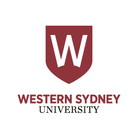Master of Epidemiology
Master of Epidemiology
Be the super mind that takes on superbugs with our Master of Epidemiology. Find the solutions to challenging epidemics with our Master of Epidemiology. To lead the charge in combating disease, improve global health and establish effective public health policy, reserve your place at Western now. For over 10 years…
Categories
COURSE DESCRIPTION
Be the super mind that takes on superbugs with our Master of Epidemiology. Find the solutions to challenging epidemics with our Master of Epidemiology. To lead the charge in combating disease, improve global health and establish effective public health policy, reserve your place at Western now.
For over 10 years Western Sydney University has been at the bleeding edge of medical education. Our passion for learning that makes a difference in the real world is one of the reasons why we are ranked in the Top 2% of universities in the world, and one of the world’s Top 100 young universities. You see, we believe knowledge doesn’t just come from theory but also by being actively involved in the medical field. It’s why we’re involved in collaborative research with clinicians, policy makers and community partners. We’re leaders in health research both nationally and internationally. Because of all this our graduates are highly sought after. Our commitment to being at the forefront of education is evidenced by our Master of Epidemiology degree taught out of Parramatta Campus. Graduates learn vital skills and knowledge to lead the charge in combating disease improve global health and establish effective public health policy.
Your career:
As a graduate in epidemiology, you can look forward to career opportunities in:
Health and Medical Research
Environmental Health
Communicable Disease Control
Government Health Agencies
Private Industry
REQUIREMENTS
Entry Pathway A (80 credit points)
Applicants must have successfully completed:
• a Bachelors (Honours) degree, or higher in a health, welfare or aged care discipline (including the embedded Graduate Certificate or Graduate Diploma in Epidemiology);
OR
• a Bachelors degree, or equivalent in a health, welfare or aged care discipline; AND 2 years’ full time equivalent documented relevant professional experience OR 5 years’ full-time work-experience in a related field
Entry Pathway B (120 credit points)
Applicants must have successfully completed
• a Bachelors degree or equivalent in a health, welfare or aged care discipline;
OR
• a Bachelors degree in any discipline; AND 2 years’ full time equivalent documented relevant professional experience OR 5 years’ full-time work-experience in a related field
Entry Pathway C (160 credit points)
Applicants must have successfully completed
• a Bachelors degree, or higher, in any discipline;
OR
• An advanced diploma, or equivalent, in a related discipline AND five years full-time equivalent work experience at a managerial or professional level in roles in a health, welfare or aged care discipline
English Language Requirements:
IELTS: 6.5 overall score (min 6.0 in each subtest); TOEFL internet-based score of 82: Writing 21, Speaking 18, Reading 13, Listening 13; Pearson Test of English Academic (PTE): 58 overall; No communication skills less than 50.
EDUCATIONAL INSTITUTION
Western Sydney University is located in New South Wales and operates out of 13 accessible campuses across Sydney (Bankstown, Liverpool City, Campbelltown, Sydney City, Sydney Olympic Park, Parramatta, Parramatta City, Westmead, Penrith and Hawkesbury). The student body numbers more than 35,000. With a mix of modern high rise and heritage buildings, equipped with technology-enabled learning facilities, libraries, research facilities, and studios, the University covers a wide range of academic programs including the School of Business, School of Computer, Data and Mathematical Sciences, School of Education, School of Engineering, Design and Built Environment, School of Health Sciences, School of Humanities and Communication Arts, School of Law, School of Medicine, School of Nursing and Midwifery, School of Psychology, School of Science, School of Social Sciences and the Graduate Research School.




